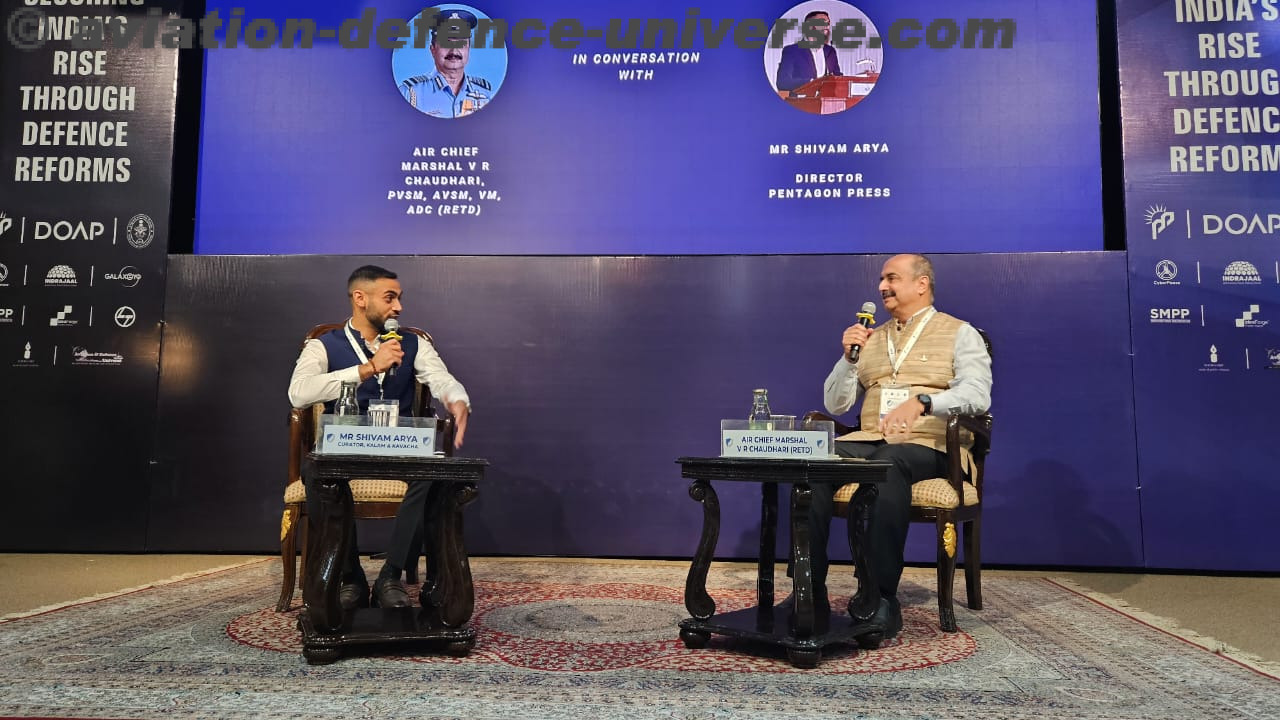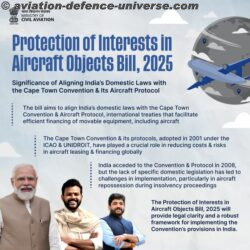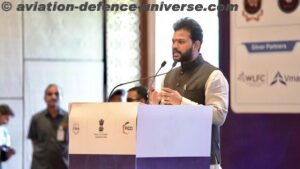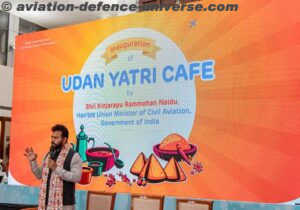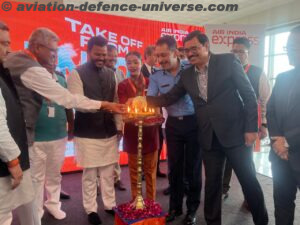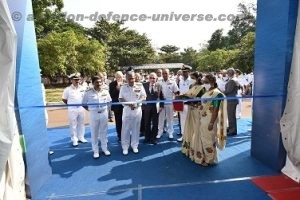By Sangeeta Saxena
New Delhi. 25 June 2020. These are not sunny times for the world as a whole but the skies are really dark for the aviation, hospitality and tourism industries in the COVID-19 hit globe. When the world was expecting both air passenger traffic and air freight traffic to more than double in the next two decades, forecasts indicated that in 2036 aviation will provide 98 million jobs and generate USD 5.7 trillion in GDP, corona virus came, saw and conquered leaving aviation, tourism and hospitality industries in a soup. But like in every disaster there comes a time when the affected party bounces back , even if slowly but with a will to do so. The governance, the industry and the customer all need to strike back with a vengeance, for they will have to learn to operate with Corona and hence resume
So it was a morale booster when the aviation and travel value chain came together under the aegis of the U.S-India Aviation Cooperation Program (ACP) to discuss ways to restore customer confidence in flying amid health concerns over COVID-19. Series of progressive discussions, best practices and steps outlined by the industry to embrace a proactive customer experience in air travel, hospitality and tourism.
The U.S-India Aviation Cooperation Program (ACP), ACP in association with Boeing, Pratt & Whitney, and other industry leading companies hosted a webinar, “Restoring Confidence in Air Travel” that saw participation from the Ministry of Civil Aviation, Ministry of Tourism, International Civil Aviation Organisation (ICAO), Federal Aviation Administration (FAA), International Air Transport Association (IATA), Airports Authority of India (AAI), Incheon International Airport, GMR, IndiGo, Marriott International, and the Taj Hotels.
The aviation and hospitality industries shared initiatives that they are taking to minimize the risk of virus transmission and layers of protection being built into every aspect of travel. This includes contactless boarding experience for passengers, cleaning and disinfecting practices in an aircraft, minimizing contaminants from spreading throughout the aircraft cabin through the careful design of the cabin air system and encouraging passengers to wear face coverings.
“The Covid-19 pandemic requires a joint effort to minimize air travel health risks, and restore public confidence in travel and aviation. As air travel resumes and restrictions ease, the industry needs to partner and collaborate to develop new solutions, build on the existing best practices, and provide a safe travel experience to travellers. The safety and wellbeing of travellers, passengers and industry employees is a top priority for ACP and its members,” said Sandeep Bahl, Program Director, US-India Aviation Cooperation Program.
Boeing recently announced its Confident Travel Initiative where its team of experts will work with airlines, global regulators, industry stakeholders, flying passengers, infectious disease experts and behavioural specialists to establish industry-recognized safety recommendations. The team is also advising operators on existing, EPA-approved disinfectants that are compatible with airplane flight decks and cabins and testing other sanitizers. Boeing airplanes utilize High Efficiency Particulate Air (HEPA) filters that trap 99.9+ percent of particulates — including bacteria and viruses from recirculated air and prevents them from re-circulating back to the cabin. Boeing is also focusing on longer-lead items that will serve as additional layers of protection to what’s already in place today. This includes existing UV technology and how it might be used to sanitize the flight deck, off the shelf anti-microbial coatings that provide a hostile environment for viruses and bacteria once it’s sprayed on surfaces and self-disinfecting airplane lavatory.
Stressing improved air travel health measures as the need of the hour, Salil Gupte, president, Boeing India said, “We are partnering with airlines, Ministry of Civil Aviation, DGCA and the industry to create a multi-layered approach focused on keeping passengers and airline crews healthy. Layered protection requires a system-wide approach extending beyond the airplane to the full travel experience. Having consistent, industry-recognized safety standards and protocols will be an important part of recovery as travel resumes.”
Emphasizing the need for industry alignment, Ashmita Sethi, President and Country Head, Pratt & Whitney, UTC India said “As air travel recovers from the Covid-19 impact, innovation and coordination between the industry and government will be key to restoring passenger confidence. Pratt & Whitney has been supporting its customers in India to meet the demands of the world’s fastest growing aviation market. In fact, even during the recent pause in air travel due to the extended lockdown, we have continued to work closely with our airline customers – bringing in special charters to upgrade fleets, improving quick-turn MRO capabilities and reducing turn-around times – thereby ensuring that airlines are ready for a well-supported return to demand.”
During the webinar, representatives from the Ministry of Civil Aviation, Ministry of Tourism and global aviation bodies like the International Civil Aviation Organization and International Air Transport Association stressed on the importance of a collaborative and globally co-ordinated approach towards increasing consumer confidence and demand.
“We continue to rigorously follow recommendations and measures by our industry, international council, health and safety organizations and other stakeholders to restore confidence in air travel for our people in India,” said Usha Padhee, Joint Secretary, Ministry of Civil Aviation, India. “The ACP webinar discussion today demonstrates that collaborative approach between all stakeholders is the way to restore the confidence to bring air travel back.”
“Our focus is to bring back the vibrancy in India’s tourism sector and to collaborate with the travel trade for achieving the same,” said Meenakshi Mehta, Joint Director General, Ministry of Tourism, India.
“The restart of Aviation and future resilience can be achieved by building confidence in travelling public by harmonized internationally bench-marked public health measures, and collective efforts by stakeholders. Congratulations to ACP for taking this step,” said Dr. Shefali Juneja, Representative of India to International Civil Aviation Organization.
“All of us across the travel and tourism value chain face an uphill challenge if our customers are not traveling. We need to work together to restore the confidence about traveling. It is important for harmonization of processes among all stake holders, and to recognize aviation’s role in economic growth, job creation, delivery of goods and services, and global connectivity,” said Amitabh Khosla, Country Director – India, International Air Transport Association.
Discussions during the webinar also highlighted the importance of seamless coordination between airports, airlines and other stakeholders in the travel value chain, as customers navigate the ‘new normal’ of flying.
“As the largest airline in India, IndiGo has developed our ‘lean, clean flying machine’ to help customers build confidence that travelling through the airports and on our aircraft will not put them at risk at all,” said William Boulter, Chief Commercial Officer, IndiGo.
“The COVID-19 pandemic is an unprecedented crisis for the aviation industry. The recovery from this crisis can happen only by restoring public confidence in the health and safety of flying. The new mitigation measures introduced at airports with respect to sanitisation, cleanliness, hygiene and social distancing, as well as health screening procedures on departure and arrival have significantly reposed confidence amongst the flyers, which is evident from the increasing number of air travellers,” said Videh Kumar Jaipuriar, CEO- DIAL. “At Delhi Airport we have set up UV tunnels to sanitize baggage, baggage trolleys etc., installed highly efficient HEPA filters to trap and flush out harmful particles such as pollen and dust mites, introduced contactless food ordering and delivery system among others, which have been highly appreciated by the people at large and boosted passenger confidence to a large extent.”
“Aviation is one of the safest mode of transport, and passenger confidence in air travel needs to be reinforced. India has lifted restrictions on domestic air travel and international air travel is expected to resume soon. We are very optimistic that the industry will bounce back and the new normal is here to stay. The collaborative efforts of all stakeholders of the aviation industry in making the passenger journey safe to overcome the turbulent times is commendable,” said Pradeep Panicker, CEO, GHIAL.
The industry agreed to work together to establish industry-recognized safety recommendations and create awareness on the measures they are taking to reduce the risk of transmission in transit in an aircraft, airports or hotels. But the major takeaway was that all the three industries are trying to reinvent themselves. Less is more is the message coming out. High contact industries to contactless industries, where staff have gone through very aggressive training programmes to deliver from a distance. During the lockdown period 70% of the staff stayed in the hotels and cleaning staffs were given hospital level PPEs and both the activities are being continued in the Unlock period.
The U.S-India Aviation Cooperation Program (ACP) is a unique bilateral public-private partnership launched in 2007 between the U.S. Federal Aviation Administration (FAA), the U.S. Trade and Development Agency (USTDA), the U.S. Departments of Commerce and State and U.S. aviation companies, has been established to provide a forum for unified communication between the Government of India and U.S. public and private sector entities in India. Under this public-private partnership, USTDA has sponsored an conference in New Delhi, a multi-phase Air Traffic Management Training Program, and technical workshops on certification of India’s satellite navigation system, GAGAN, and Air Traffic Flow Management practices. New projects include a Helicopter Aviation Safety and Aviation Standards and Processes technical assistance program for the Directorate General of Civil Aviation.












